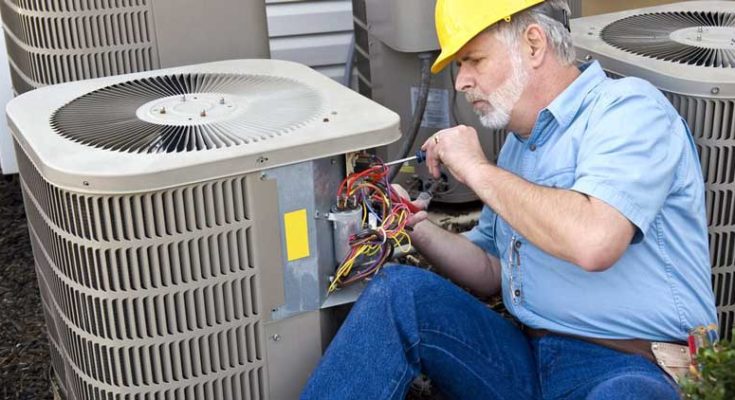Part one of a two-part series
By Jim Johnson
Summer is almost here, which means you’ll be depending on your air conditioning system to keep your house comfortable with the outdoor temperatures hovering near the 100s. And, you may be considering a seasonal maintenance check to be sure that you won’t be dealing with the unpleasant surprise of an equipment break-down in the middle of July.
Good idea . . . providing it’s done right by a qualified professional. The unfortunate reality about the residential air conditioning service industry is that it’s not always done right, and the person who shows up to perform the service may not, in fact, be qualified.
As a homeowner, the two things you likely know about the comfort cooling system in your home are how to use the thermostat to select a temperature and turn it on, and that it makes some noise when it’s working. Some of that noise is inside the house because the air handling system is… well… handling air. Air is being delivered to the rooms in the house via the supply registers, and that air is then being drawn in through the return air grille (where you commonly find the filter you’re supposed to change or clean on a monthly basis). And, on the outside, the noise is from the compressor and the outdoor fan motor that runs along with it when the system is operating like it should.
Which means, of course, that you’re depending (sometimes, incorrectly assuming) that the aforementioned qualified professional will be the person who shows up at your door. Yes, the prospect that someone you call for service may not be competent, or worse, may not be honest, is frightening. But, take heart, there are fundamental things you can understand about your air conditioning system, and some simple steps you can take to make sure you’re getting good value for your money spent when you’re hiring a service company to perform preventive maintenance and seasonal checks.
Air Flow, Air Flow, Air Flow
You’ve likely heard the old real estate adage that the three most important things about a building are location, location, location. When it comes to your air conditioning system, from a qualified HVACR (Heating, Ventilation, Air Conditioning & Refrigeration) technician’s perspective, its air flow, air flow, air flow. A properly trained and, if necessary, certified HVACR technician has enough technical knowledge on the subject of air and what’s supposed to happen to it in the process of keeping people comfortable to confuse you and bore you to tears in a New York minute, so we won’t go into great detail on that subject here.
But, as a homeowner, you can have an elementary understanding of what’s supposed to happen in regard to air flow when your air conditioner is working correctly by taking a look at our simple illustration.
 While our illustration doesn’t show a complete central air conditioning system that keeps an entire house comfortable – it’s only a room air conditioner, also known as a window air conditioner – it does show the basic idea of airflow for both the indoor and outdoor sections of a comfort cooling system as simple as possible. When it comes to the indoor airflow section where the air gets cooled by being drawn into the evaporator, it just makes sense that a dirty filter will prevent the system from working properly.
While our illustration doesn’t show a complete central air conditioning system that keeps an entire house comfortable – it’s only a room air conditioner, also known as a window air conditioner – it does show the basic idea of airflow for both the indoor and outdoor sections of a comfort cooling system as simple as possible. When it comes to the indoor airflow section where the air gets cooled by being drawn into the evaporator, it just makes sense that a dirty filter will prevent the system from working properly.
And, in both the indoor and outdoor airflow situations, if the coils aren’t clean, that also affects the operation the equipment, which translates to longer-than-normal run cycles, which means your bottom line is wasted money.
Hiring A Pro
So, like we said, it’s a good idea to call a qualified professional, someone who is familiar with the four-syllable words, complex math, and concepts you have no idea about that are part of understanding the air flow in your air conditioning system, to perform a seasonal check of the equipment.
The question is, though, how do you know whether or not the technician who shows up to perform the work is capable and competent?
One way to approach deciding who to call is to consider NATE.
NATE (North American Technician Excellence) is the nation’s largest non-profit certification organization for heating, ventilation, air conditioning and refrigeration technicians. Founded in 1997, they have certified approximately 34,000 technicians in the United States. When you visit a contractor’s website, check for information on NATE or other certifications, and when you call to schedule service, ask about their policies and procedures regarding technician certification.
In part two of this series, we’ll talk more about hiring the right person for the job of servicing your air conditioning system, and the reality of the need to “add gas” to your air conditioning system.








